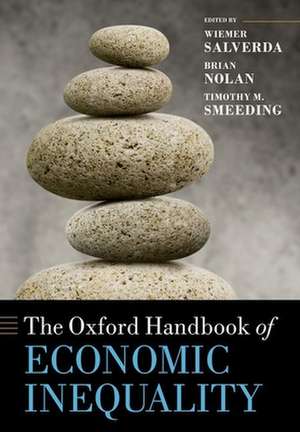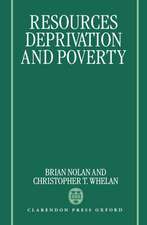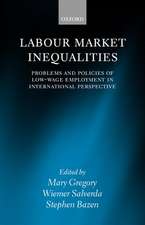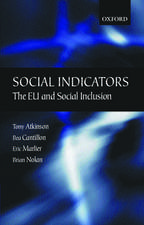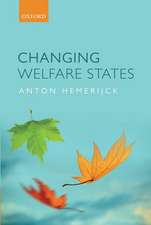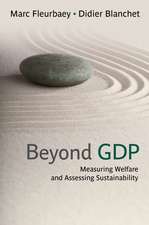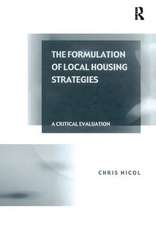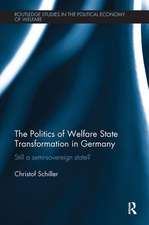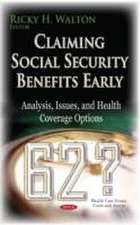The Oxford Handbook of Economic Inequality: Oxford Handbooks
Editat de Wiemer Salverda, Brian Nolan, Timothy M. Smeedingen Limba Engleză Paperback – 3 feb 2011
| Toate formatele și edițiile | Preț | Express |
|---|---|---|
| Paperback (1) | 283.51 lei 31-37 zile | |
| Oxford University Press – 3 feb 2011 | 283.51 lei 31-37 zile | |
| Hardback (1) | 950.26 lei 31-37 zile | |
| OUP OXFORD – 19 feb 2009 | 950.26 lei 31-37 zile |
Din seria Oxford Handbooks
-
 Preț: 236.89 lei
Preț: 236.89 lei - 8%
 Preț: 358.80 lei
Preț: 358.80 lei - 17%
 Preț: 912.51 lei
Preț: 912.51 lei - 12%
 Preț: 307.94 lei
Preț: 307.94 lei - 25%
 Preț: 829.05 lei
Preț: 829.05 lei - 14%
 Preț: 987.01 lei
Preț: 987.01 lei - 26%
 Preț: 1376.97 lei
Preț: 1376.97 lei - 29%
 Preț: 929.22 lei
Preț: 929.22 lei -
 Preț: 303.54 lei
Preț: 303.54 lei - 26%
 Preț: 343.85 lei
Preț: 343.85 lei - 14%
 Preț: 278.15 lei
Preț: 278.15 lei - 29%
 Preț: 930.94 lei
Preț: 930.94 lei - 30%
 Preț: 1065.79 lei
Preț: 1065.79 lei - 15%
 Preț: 357.85 lei
Preț: 357.85 lei -
 Preț: 263.45 lei
Preț: 263.45 lei - 23%
 Preț: 839.81 lei
Preț: 839.81 lei - 16%
 Preț: 264.39 lei
Preț: 264.39 lei - 33%
 Preț: 737.68 lei
Preț: 737.68 lei - 33%
 Preț: 725.45 lei
Preț: 725.45 lei - 26%
 Preț: 342.76 lei
Preț: 342.76 lei - 25%
 Preț: 366.95 lei
Preț: 366.95 lei - 13%
 Preț: 304.72 lei
Preț: 304.72 lei - 16%
 Preț: 263.35 lei
Preț: 263.35 lei - 12%
 Preț: 267.23 lei
Preț: 267.23 lei - 33%
 Preț: 815.51 lei
Preț: 815.51 lei - 6%
 Preț: 346.76 lei
Preț: 346.76 lei - 22%
 Preț: 1095.69 lei
Preț: 1095.69 lei - 29%
 Preț: 931.18 lei
Preț: 931.18 lei - 29%
 Preț: 942.77 lei
Preț: 942.77 lei - 24%
 Preț: 1071.82 lei
Preț: 1071.82 lei - 23%
 Preț: 1052.07 lei
Preț: 1052.07 lei - 21%
 Preț: 863.03 lei
Preț: 863.03 lei - 30%
 Preț: 815.25 lei
Preț: 815.25 lei - 29%
 Preț: 855.42 lei
Preț: 855.42 lei - 30%
 Preț: 842.04 lei
Preț: 842.04 lei - 11%
 Preț: 258.32 lei
Preț: 258.32 lei - 29%
 Preț: 859.51 lei
Preț: 859.51 lei - 29%
 Preț: 1083.61 lei
Preț: 1083.61 lei - 15%
 Preț: 273.41 lei
Preț: 273.41 lei - 30%
 Preț: 818.12 lei
Preț: 818.12 lei - 11%
 Preț: 365.23 lei
Preț: 365.23 lei - 21%
 Preț: 359.87 lei
Preț: 359.87 lei - 13%
 Preț: 264.87 lei
Preț: 264.87 lei - 9%
 Preț: 307.08 lei
Preț: 307.08 lei - 28%
 Preț: 845.79 lei
Preț: 845.79 lei - 23%
 Preț: 855.11 lei
Preț: 855.11 lei - 21%
 Preț: 861.04 lei
Preț: 861.04 lei - 12%
 Preț: 250.34 lei
Preț: 250.34 lei
Preț: 283.51 lei
Preț vechi: 318.89 lei
-11% Nou
Puncte Express: 425
Preț estimativ în valută:
54.26€ • 56.44$ • 44.79£
54.26€ • 56.44$ • 44.79£
Carte tipărită la comandă
Livrare economică 03-09 aprilie
Preluare comenzi: 021 569.72.76
Specificații
ISBN-13: 9780199606061
ISBN-10: 0199606064
Pagini: 768
Ilustrații: 78 Figures, 60 Tables
Dimensiuni: 176 x 247 x 40 mm
Greutate: 1.21 kg
Editura: Oxford University Press
Colecția OUP Oxford
Seria Oxford Handbooks
Locul publicării:Oxford, United Kingdom
ISBN-10: 0199606064
Pagini: 768
Ilustrații: 78 Figures, 60 Tables
Dimensiuni: 176 x 247 x 40 mm
Greutate: 1.21 kg
Editura: Oxford University Press
Colecția OUP Oxford
Seria Oxford Handbooks
Locul publicării:Oxford, United Kingdom
Recenzii
This book should be of interest to a vast audience...All chapters are clearly written and accessible, even for non specialists. This Handbook covers almost all the themes that are of importance to those interested in economic inequality, whether from a theoretical, empirical or policymaking perspective, which is a great achievement indeed.
Notă biografică
Wiemer Salverda initiated the LoWER network in 1995 to bring together Europe's leading scholars on low pay and earnings inequality. With the help of the European Community's research funding, the network has been a prolific organizer of meetings and a fertile producer of publications. Moving from the University of Groningen's Economics Faculty he joined the Amsterdam Institute for Advanced Labour Studies of the University of Amsterdam in 2000, where he helped build an extensive portfolio of international research and research cooperation. He provides expert advice on low pay, wage inequality, the minimum wage, youth labour, older workers, employment policy, and labour market reform to the EU, OECD, ILO and the British Low Pay Commission. He chairs the Supervisory Board of the international WageIndicator which offers internet surveying of pay in many countries.Brian Nolan is Professor of Public Policy in the School of Applied Social Science, UCD, Dublin. His research focuses on poverty, income inequality, the economics of social policy, and health economics, and recent publications include studies on social inclusion in the EU, equity in health service use, long-term trends in top incomes, child poverty, deprivation and multiple disadvantage, tax/welfare reform, and the minimum wage. Timothy M. Smeeding is Distinguished Professor of Economics and Public Administration at the Maxwell School of Syracuse University where he is also the founding director of the Center for Policy Research. He the Founder and Director Emeritus of the Luxembourg Income Study Project , which he began in 1983. His primary research focuses on national and cross-national comparisons of income and wealth inequality, social mobility, and poverty among vulnerable groups, including low-wage workers, children, the aged, and the disabled. He is spending the 2007-2008 academic year as a Visiting Fellow in residence at the Russell Sage Foundation in New York where he is examining cross-national paterns of economic mobility.
